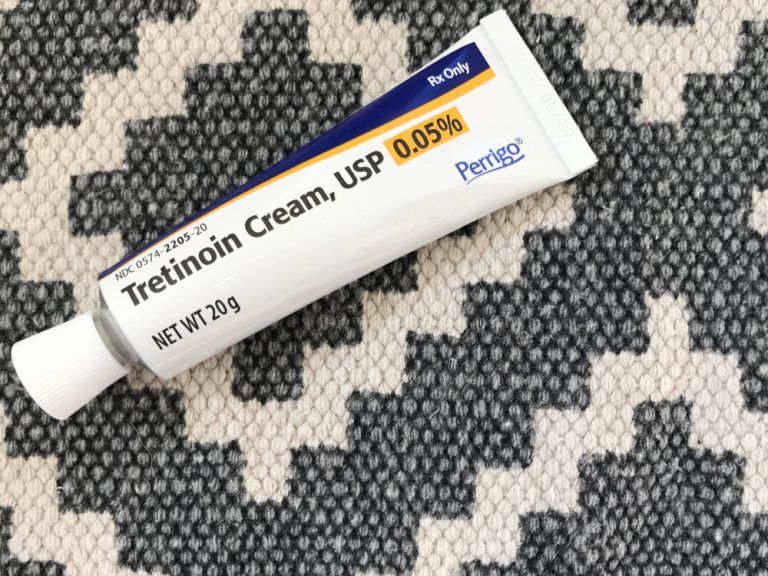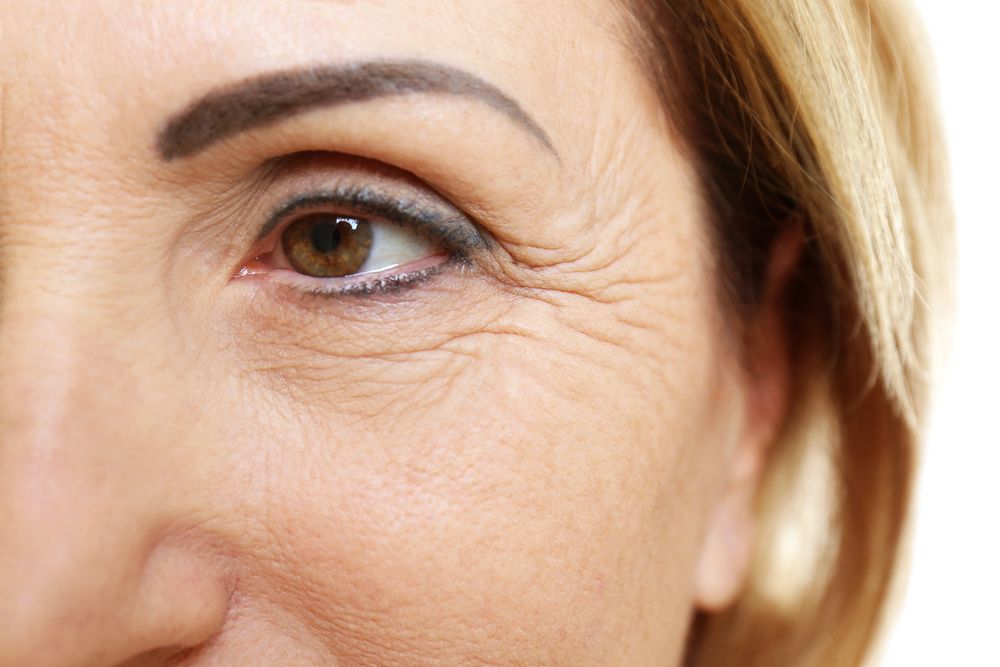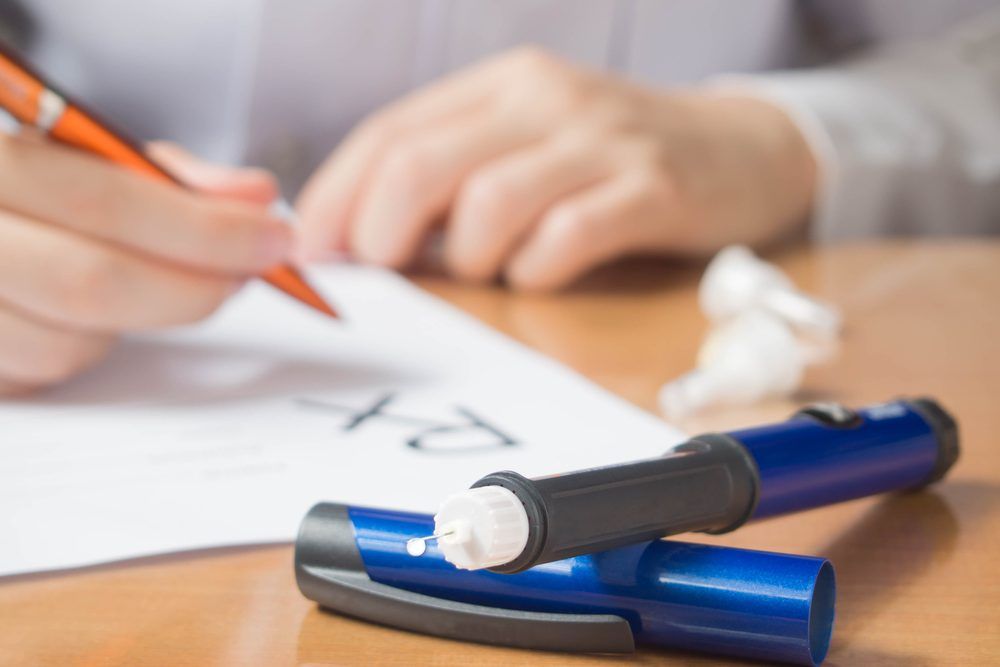Using Tretinoin for Wrinkles and Aging (Dosage & Other Info)
Tretinoin is a retinoid, a class of vitamin A-based drugs used to treat skin conditions like wrinkles and acne. It can’t totally erase all wrinkles, but it can help tighten the skin and add softness. Many people will notice significant reduction in their wrinkles within one year of properly using tretinoin.(Learn More) Tretinoin is a prescription, and it can cause serious irritation when used incorrectly. Adults under 50 years old will generally apply it once at night, and adults over 50 have more widely varying prescribed doses. Always use tretinoin as prescribed. (Learn More) If you experience itching, hives, or serious pain while on tretinoin, call your doctor immediately. Tretinoin tends to cause mild skin irritation and sensitivity to sunlight, cold, and wind. While normal, you should avoid going out for long in these conditions, dress appropriately when you do (being sure to apply sunscreen daily), and use moisturizer to soothe sensitive skin. (Learn More) Tretinoin is well studied, and it is one of the go-to prescription retinoids to help people with wrinkles. While it can be effective, its potency can cause more irritation problems than milder alternatives. At the same time, tretinoin is an accepted and useful anti-aging treatment. (Learn More) While it will not completely erase all signs of aging, tretinoin can help many look younger and have fewer wrinkles. While you should keep expectations realistic for anti-aging treatments, many people do see noticeable results with consistent, proper use. (Learn More)
Using Tretinoin for Wrinkles
Tretinoin is a retinoid, sold under several brand names, including Atralin, Avita, Refissa, Renova, and Retin-A. Retinoids are a class of drug commonly used in anti-aging treatments, although they are also used for other purposes, like to treat acne. Tretinoin helps to increase collagen production and the creation of red blood vessels in the skin. This can help make skin tighter, softer, and more even in color. Results usually take about six months to show. It can potentially take up to a year to show the best results you are likely to achieve with the treatment. Like all retinoids, tretinoin is a topical vitamin A-based drug. It is important to follow the instructions provided by your doctor when using tretinoin. Improper use of tretinoin can cause negative side effects.
Proper Use of Tretinoin

Tretinoin should be used as prescribed. Do not adjust your dose or apply it more often or longer than intended. Generally speaking, adults under 50 are usually meant to apply tretinoin once per day, right before bed. Adults over 50 years old have more varied dosing, dependent on their needs. If you miss an application, it is generally fine to apply it as soon as possible. The only exception is if you are reaching the time when you should be next applying it. In this case, do not double the dose. Tretinoin comes in liquid, cream, gel, and lotion forms. The gel, cream, and lotion forms are all applied the same way. Gently clean your face with soap or cleanser. Use your fingers, not a washcloth or sponge. Once you have cleansed your skin, wait 20 to 30 minutes, so your skin can dry. Your skin should be completely dry before applying tretinoin. Cream, gel, and lotion forms should be applied lightly and uniformly to the chosen areas. The exact amount needed will vary, but generally, a pea-sized amount will be enough for the entire face. The liquid form is applied slightly differently. Apply it using fingertips, a gauze pad, or a cotton swab. Be careful not to soak what you are using to apply the medicine, as this may cause it to leak into areas you don’t intend. Wash your hands after applying your medicine. Do not wash your face for at least one hour. This helps to ensure your treatment is effective, and it prevents you from accidentally smearing the medication into unintended areas.
Precautions & Side Effects
Do not apply any other skin products to areas being treated with tretinoin without first consulting your doctor. Tretinoin can aggravate the skin and mixing it with other products with similar side effects can potentially lead to severe irritation. Moisturizers should not cause irritation. They may help if tretinoin is making your skin sensitive. Users of tretinoin may find their skin is very sensitive to sunlight, wind, and cold weather, especially for the first two or three weeks of use. Dress with this sensitivity to these conditions in mind, and apply sunscreen if you are going to be outside for long. Sunlight and dry skin can make wrinkles worse to begin with, so they should generally be avoided as part of any wrinkle treatment anyway. In addition to the above, tretinoin can have a number of other side effects. Call your doctor immediately if you experience the following:
Itching
Hives
Serious pain in the treated areas
Tretinoin may cause less serious side effects. While not generally of concern, talk to your doctor if these symptoms are severe or do not go away:
Hot or light stinging sensations on the treated area
Lightening or darkening of skin
Scaling
Acne scores
Swelling, blistering, or crusting of the skin
Dryness, pain, burning, stinging, peeling, redness, or flaky skin at the treatment area
Efficacy
As explored in a 2006 study, tretinoin is a proven retinoid. It is well studied and potent. The study noted that several other options — such as adapalene, retinol, and retinaldehyde — can also be effective for many people. While they are less potent, they also have less potential for serious irritation. Tretinoin cannot fix deep wrinkles, nor will it be able to prevent them completely. It can slow wrinkling and help users appear more youthful. Generally, it will have to be used in tandem with other things, such as lifestyle changes and a good skincare routine. As noted above, best results are usually produced six months to a year after starting tretinoin. If you experience serious irritation or do not see notable results, discuss your concerns with a dermatologist.
Conclusions
Tretinoin is not a cure for aging. As we get older, we will inevitably wrinkle. It can, however, reduce wrinkling with consistent use. Ultimately, you should keep your expectations realistic to prevent disappointment. Tretinoin is effective as far as anti-aging treatments go. It does require a prescription from a doctor. If you are careful to follow precautions and instructions, tretinoin may be able to help you look more youthful. Talk to your doctor about milder options if you are worried about side effects.
References
Tretinoin (Topical Route): Description and Brand Names. (February 1, 2019). Mayo Foundation for Medical Education and Research (MFMER).
Tretinoin (Topical Route): Proper Use. (February 1, 2019). Mayo Foundation for Medical Education and Research (MFMER).
Tretinoin (Topical Route): Precautions. (February 1, 2019). Mayo Foundation for Medical Education and Research (MFMER).
Retinoids in the Treatment of Skin Aging: An Overview of Clinical Efficacy and Safety. (December 2006). Clinical Interventions in Aging.
Do Retinoids Really Reduce Wrinkles? Harvard University.
Wrinkles. (March 7, 2018). Mayo Foundation for Medical Education and Research (MFMER).
Tretinoin Topical. (March 15, 2019). MedlinePlus.

Related Articles

Saw Palmetto for Hair Loss: What the Science Shows
Saw palmetto is a small tree that grows in southeastern...

Metformin & Hair Loss: What Does the Science Indicate?
Metformin is a treatment for type II diabetes. One of the...

Using Tretinoin for Wrinkles and Aging (Dosage & Other Info)
Tretinoin is a retinoid, a class of vitamin A-based drugs...

Pros and Cons of Trintellix vs. Other Antidepressants
Trintellix is an atypical antidepressant medication...
